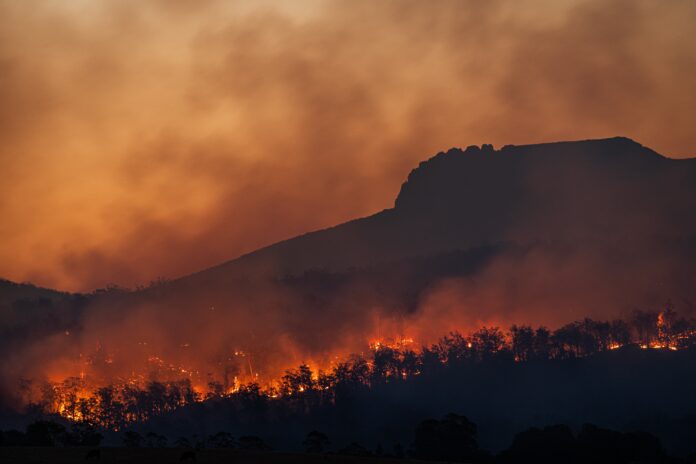Law Students for Climate Accountability (LSCA), a coalition of law students determined to hold the legal industry accountable for its role in the ongoing climate crisis, released their 2022 Law Firm Climate Change Scorecard today. The report, which follows similar scorecards released in 2020 and 2021, chronicles how the vast majority of the 2022 Vault Law 100 firms (Vault 100) conduct massive amounts of legal business on behalf of fossil fuel clients.
The results of the report are—as LSCA put it in their press release—devastating. LSCA found that over the past year, the Vault 100 facilitated $1.62 trillion dollars of fossil fuel transactions and litigated 420 cases for fossil fuel clients. Especially concerning is that these numbers are significantly worse than those of the 2021 scorecard. In this year’s report, 2 more firms than last year—a total of 38—received an “F” grade. According to LSCA, that’s an accomplishment that requires a firm to either litigate 8 or more cases, facilitate over $20 billion in transactions, or receive over $2 million for lobbying on behalf of fossil fuel interests. Meanwhile, only 2 firms total received an “A” grade, and only 7 received a “B”—those grades being only achievable if a firm’s work does not, on balance, exacerbate climate change.
The math points to a distressing conclusion: as our climate crisis rapidly worsens, more than 90% of the Vault 100 firms are undertaking work—trillions of dollars of work—that will only exacerbate the critical condition of our world. For them, short-term profits reign supreme. As Emmett Barnes, a student at UCLA Law and a lead author on the report, put it in LSCA’s press release, the decision to take on “more new fossil fuel work than they have new renewable energy work [is] a clear sign that they do not fear the consequences of that choice.”
While troubling, the report is by no means a reason for students to give up. LSCA instead hopes it will be a clarion call for activists to continue to organize. “While we are disappointed, we are not disheartened,” said Erica Liu, a student at New York University School of Law and a lead author on the report, in the press release. “We will continue to put pressure on these firms and to shed light on the consequences of their actions. More than ever, law students are occupying offices, disrupting recruiting events, speaking to their classmates, and standing in solidarity with the communities that have led the fight for climate action and a just transition. The movement to change the legal industry is only growing, and it is about time that the nation’s top law firms get on board.”
Recent organizing campaigns include #DoneWithDunn, in which law students demonstrated in front of Gibson, Dunn & Crutcher’s offices and boycotted the firm, and #DropExxon, in which law students disrupted a recruiting event for Paul, Weiss, Rifkind, Wharton & Garrison and organized a similar boycott.
LSCA foresees that the scorecard will lead to smaller, more personal protest as well. The scorecard’s release, as it happens, comes just days before the interview week of Harvard Law’s corporate law Early Interview Program (EIP). While the stranglehold of the fossil fuel industry on the corporate legal world is one of many reasons students with the financial wherewithal to do so should skip BigLaw interviews entirely, law students at HLS and elsewhere who participate in such interviews can use the scorecard as a tool in firm selection.
Rachel Neuberger, a student at HLS, has employed prior scorecards to do just that. “I used LSCA’s scorecard data on transactions and litigation to figure out who was the real deal,” she explained in the press release. “For example, I could see which firms litigated against climate regulations and in which cases. The LSCA scorecard leaves law students with no excuse for choosing a firm that exacerbates the climate crisis.”
Making the decision that way is not only about feeling good—it is about making a statement. Said Barnes in the press release: “With this Scorecard, LSCA gives students—as well as potential clients of the Vault 100—the ability to use their position to express a resounding rejection of firms that represent fossil fuel companies.”
You can read the 2022 scorecard here and check out LSCA’s press release here.
Marty Strauss is Editor-in-Chief of The Harvard Law Record. He is also a member of the HLS LSCA chapter, although he did not work on the 2022 LSCA scorecard.


